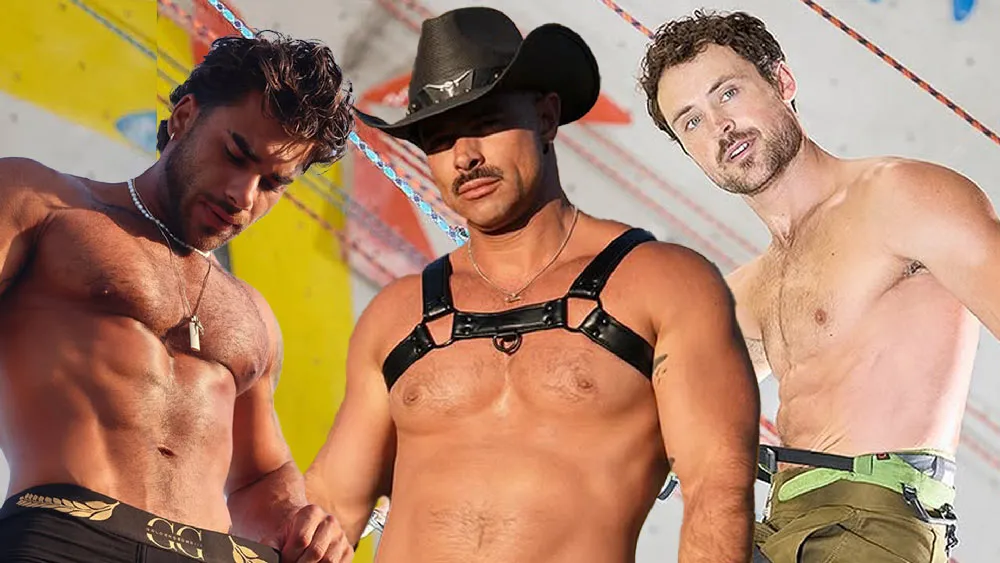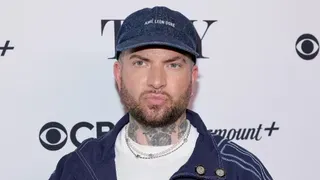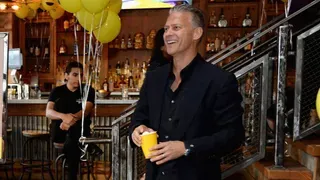December 31, 2015
Best LGBT Nonfiction, 2015
Brian Bromberger READ TIME: 5 MIN.
2015 was an excellent year for LGBT books, especially memoirs. Most of the volumes on this list try to explain why we have achieved so much equality in the last decade, and what the implications may be for our community and the larger society.
10. Hoover's War on Gays: Exposing the FBI's "Sex Deviates" Program, by Douglas M. Charles.
In a feat of investigative research, Penn State historian Charles has pieced together the unethical procedures, purposes, and contents of the remaining fragments of J. Edgar Hoover's notorious "Sexual Deviates" 330,000+ pages file, destroyed by the Bureau in 1977-78. Highlights include the downfall of activist Frank Kameny, the Lavender Scare (gays labeled suspected Communist sympathizers), and the persecution of SF's own Daughters of Bilitis founders, Del Martin and Phyllis Lyon. This thorough, engaging analysis shows the damage that results when authority runs amok in the name of decency.
Honorable Mention History book: "Marie Equi: Radical Politics and Outlaw Passion," by Michael Helquist.
9. Wagstaff: Before and After Mapplethorpe: A Biography, by Philip Gefter.
Sam Wagstaff was a wealthy curator, collector, and patron whose principal discovery was photographer Robert Mapplethorpe, his on-and-off-again lover. Wagstaff not only amassed a huge photograph stockpile stretching from classical 19th-century themes to sadomasochistic images, he also became a pivotal figure in promoting photography as an art-form, before his death from AIDS in 1987 at 65. He used art as a way to attack society's prejudice and celebrate nonconformity, but he never fully came out of the closet, and paid a heavy emotional price for his success.
Honorable Mention Biography: "James Merrill: Life and Art," by Langdon Hammer.
8. It's Not Over: Getting Beyond Tolerance, Defeating Homophobia, & Winning True Equality,>/b> by Michelangelo Signorile.
With the backlash antics of Kim Davis protesting the legalization of same-sex marriage and Houston repealing its anti-gay ordinance, journalist Signorile's polemic on the premature trumpeting of the success of LGBT equality, and on queers jumping on the assimilation bandwagon by downplaying differences to make themselves inoffensive to straight establishment forces ("covering"), seems more relevant than when it appeared in April. Signorile has produced a trenchant political critique of gay establishment triumphalism, exposing the still-entrenched homophobia and discrimination hiding in plain sight.
7. Reforming Sodom: Protestants and the Rise of Gay Rights, by Heather White.
This bold, persuasive book by a professor of religion, queer, and gender studies charts the journey of how liberal Protestants shifted their view of homosexuals from a medical diagnosis in need of compassionate cure to victims of political injustice and an unfairly stigmatized group during the 1950s-60s, advocating for gay rights years before Stonewall. White challenges the notion that LGBT progress was only a secularization narrative, with religion playing an important but less visible role underplayed by LGBT scholars.
Honorable Mention Religion book: "The Way of Tenderness: Awakening Through Race, Sexuality, and Gender," by Zenju Earthlyn Manuel.
6. Gay Directors, Gay Film?, by Emanuel Levy.
Avoiding both academic jargon and banal movie criticism, professor of film and sociology Levy has developed a framework for interpreting what it means to make a gay film by examining the oeuvre of five openly gay movie directors: Todd Haynes, Gus Van Sant, John Waters, Pedro Almodovar, and Terence Davies. He shows how gay directors can showcase radical positions on gender, desire, and sexuality by adopting subversive ways of viewing society and breaking down taboos.
Honorable Mention Social Science book: "Not Gay: Sex Between Straight White Men," by Jane Ward.
5. Voices in the Band: A Doctor, Her Patients, and How the Outlook on AIDS Care Changed from Doomed to Hopeful, by Susan Ball.
Written by a lesbian doctor who has been an internist for 23 years in the multidisciplinary AIDS care center at NY Presbyterian Hospital (modeled on Ward 86 at SF General Hospital), the book chronicles the exhilarating and exasperating evolution of HIV from a death sentence to a chronic manageable disease. Ball served patients who were the poorest of the poor and sickest of the sick, and their struggles are the heart of Voices. She learned to listen to their problems in order to administer the most effective treatment, despite the disease's continuing disenfranchisement of the indigent and people of color. The most inspirational LGBT book of 2015.
Honorable Mention AIDS book: "Visions and Revisions: Coming of Age in the Age of AIDS," by Dale Peck.
4. The Gay Revolution: The Story of the Struggle, by Lillian Faderman.
In this magnum opus, iconic LGBT historian Faderman charts a comprehensive fight for gay rights in America from the 1950s, when queers were branded criminals, mentally ill, and sinners, to the June SCOTUS ruling legalizing same-sex marriage in all 50 states. With a cast of thousands and a staggering amount of research, Faderman wants to be authoritative. But her approach is almost solely political, largely ignoring cultural advancements. Best read as a user-friendly reference tool, the book is a captivating intellectual accomplishment.
3. Then Comes Marriage: United States v. Windsor and the Defeat of DOMA, by Roberta Kaplan.
The story by the principal lawyer of the Windsor Supreme Court case, which struck down a key provision of DOMA and was instrumental in arguing this year's landmark Obergefell decision. The first book on Windsor, and the only one on the legal same-sex marriage cases from a gay litigator perspective, it centers on the 45-year love affair of Edie and Thea Spyer, shown to be the equal of any straight marriage. It's also Kaplan's journey of personal acceptance as a lesbian.
2. On the Move: A Life, by Oliver Sacks.
The autobiography of the famous neurologist/author, in which the sexy, leather-clad motorcyclist on the book's cover comes out unsensationally at age 81. The book covers his medical career, drug use, extreme bodybuilding, love of music, the importance of writing as self-discovery, and 35-year period of celibacy until he met his current lover, SF writer Billy Hayes, six years ago. Sacks' patients are seen not as impersonal case histories but as teachers struggling with their unusual neural afflictions. His book "Gratitude" includes his final writings, with the February New York Times op-ed in which he publicly revealed the incurable cancer that killed him in August. Compassionate, touching, and remarkable, Sacks becomes an LGBT role model.
Honorable Mention Memoir: "Smash Cut: A Memoir of Howard and Art & the 70s & 80s, by Brad Gooch.
1. Bettyville, by George Hodgman.
A tender and exquisitely crafted memoir written by Hodgman, a freelance magazine and book editor in recovery, about what happens when he returns to his rural hometown of Paris, Missouri, to celebrate his mother Betty's 91st birthday and discovers she is in the initial stages of dementia. With Betty refusing to enter an assisted living facility and George having lost his Manhattan job, he relocates, reversing roles by becoming his mother's "care inflictor." Hodgman's repertoire of one-liners matches Betty's quick-witted banter, with humor supplying cover for her dire situation. The book's focus is really the eventual acceptance of LGBT people by straight society, redefining what home means through the lens of Hodgman's complicated relationship with his mother, who previously never accepted his gayness. Told with grace, insight, and kindness, "Bettyville" is the best gay memoir so far this decade.





